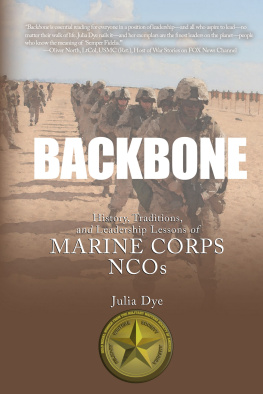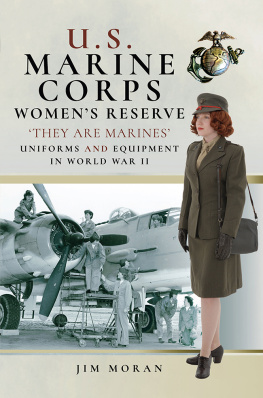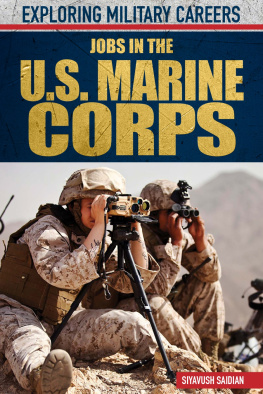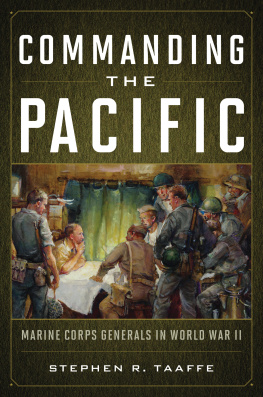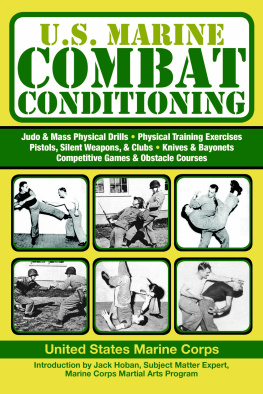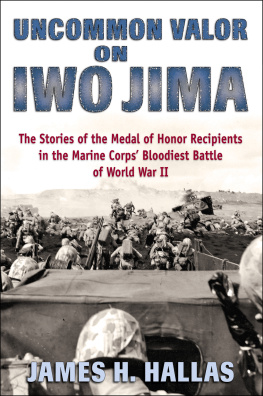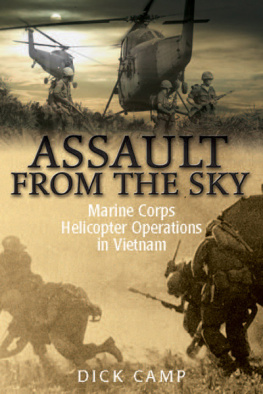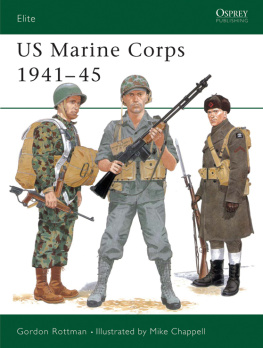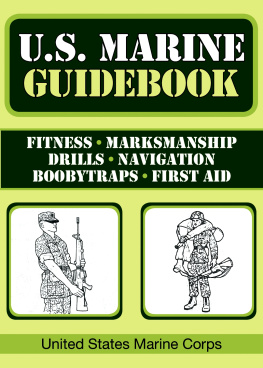Backbone
History, Traditions, and Leadership Lessons of Marine Corps NCOs
Julia Dye, Ph.D.

For my father,
who always believed
Contents
Acknowledgments
S ome special thanks are in order here. No one could possibly write a book of this nature alone. My extreme gratitude goes out first to the men and women of the United States Marine Corps who continue to serve this nation with grace and courage. Special thanks go out to those Marines who allowed me to speak with them and discover their thoughts and experiences with leadership in real-world situations.
To Major Mark Shuster: as my research assistant and liaison with the Marine Corps, your tireless efforts to build bridges between Marines and civilians are inspirational.
To the United States Marine Corps for all the support in allowing access to the NCOs whose voices are heard throughout this book. In particular, special gratitude for the assistance of Lieutenant Colonel Joseph Clearfield, Sergeant Major Ramona Cook, Sergeant Major John Cook, Sergeant Major Shelley Sergeant, Major Carl Redding, Jr., Captain Mike Alvarez, Gunnery Sergeant Chanin Nuntavong, and Gunnery Sergeant Sheryl Wilhoit. And from the U.S. Navy: LT Paul Macapagal, Lieutenant Doug Freudenberger, David P. German, and Michael McLellan, and finally Maxine MacGregor and Beth L. Crumley.
To my husband, Captain Dale A. Dye, USMC (Retired): You wield a keyboard with as much strength and skill as you wield a weapon. Thanks for your keen eye, your patience, and your support through it all. And for dog walks and tolerating one more pizza night!
Foreword
I am the backbone of the United States Marine Corps, I am a Marine Non-Commissioned Officer. I serve as part of the vital link between my commander (and all officers) and enlisted Marines. I will never forget who I am or what I represent. I will challenge myself to the limit and be ever attentive to duty. I am now, more than ever, committed to excellence in all that I do, so that I can set the proper example for other Marines. I will demand of myself all the energy, knowledge and skills I possess, so that I can instill confidence in those I teach. I will constantly strive to perfect my own skills and to become a good leader. Above all I will be truthful in all I say or do. My integrity shall be impeccable as my appearance. I will be honest with myself, with those under my charge and with my superiors. I pledge to do my best to incorporate all the leadership traits into my character. For such is the heritage I have received from that long, illustrious line of professionals who have worn the bloodstripe so proudly before me. I must give the very best I have for my Marines, my Corps and my Country for though today I instruct and supervise in peace, tomorrow, I may lead in war.
C ertain institutions carry a certain type of gravitas. Those who can claim to be a part of that institution carry that bearing with them. It can be seen in the way they walk, in the confidence of their speech, in the respect they give others. Of American institutions, the Marine Corps ranks among the very best: Harvard. The Metropolitan Opera. The Smithsonian Institution. NASA. The Mayo Clinic. Only the best get in. Each represents the pinnacle, the top of their industrythe very best of our meritocracy.
The Marine Corps is the only branch of the American Armed Forces that recruits people specifically to fight. Other branches may promise education benefits, travel, personal development, and fun. The Marine Corps promises only the honor of being a United States Marine.
A look at the recruiting websites exemplifies these differences. The Marine Corps site states:
Earned. Never Given. We dont ask for anything more than everything youve got.You will not be given anything other than the opportunity to prove that you have the courage to stand on an impenetrable line of warriors stretching 234 years. Our title is earned, never given. And whats earned is yours forever.
Thats why traditionally there are no Ex-Marines. Once a Marine, always a Marine.
Compare that to the Armys site: With the skills and training you gain in the Army, theres no limit to how far you can go.
Or the Air Force: Healthcare, travel, leadership skills, housing, and of course a pay check. The benefits of an Air Force career are many.
The other service recruiters focus on what they can do for the men and women who join. The Marine Corps focuses on what you can do for the Corps: something larger and more important than yourself.
And Marine Corps training is more challengingphysically and mentallythan the basic training programs of any of the other military services. Not only are the physical requirements much higher, but recruits are required to learn and memorize a startling amount of information, including the history and traditions of the Marine Corps. At about twelve and a half weeks, its also the longest.
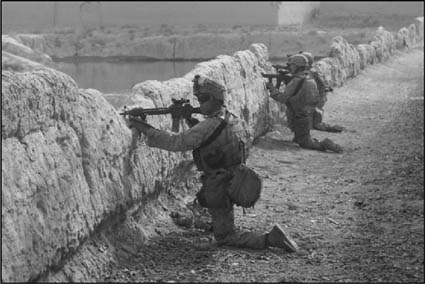
U.S. Marines with India Company, 3rd Battalion, 5th Marines provide security in the Sangin valley, Helmand province, Afghanistan, Dec. 6, 2010. The battalion was part of Regimental Combat Team 2 which conducted counterinsurgency operations in partnership with the International Security Assistance Force. (U.S. Marine Corps photo by Cpl. David Hernandez/ Released.)
The Marine Corps is the smallest of the armed forces in the U.S. Department of Defense. When the country is not at war, levels generally are well under 200,000.
This smaller size allows the Marine Corps to be more familial than the other branches. Over the course of a career, a Marine personally knows a high percentage of fellow Marines. If a Marine is struggling, others are there to support him and to help ensure his success. Although the perception of the Marines is one of rigidity and uniformity, in reality the Marine Corps allows for diverse personalities and unique career paths.
Part of this unique nature is due to the Corps amalgamation of fighting styles. Combining the best characteristics of soldiers, sailors, and airmen, the Marine is a sea soldieran odd conglomeration that talks like one, dresses like another, and fights like them all. To be different, and to remain different, is important to Marines. This difference is expressed through strict obedience to orders, military appearance, disciplined behavior, and an unyielding conviction that they exist to fight. And since every Marine, enlisted or officer, goes through the same training experience, the Corps maintains a sense of cohesiveness like no other American service.
The cohesiveness is evident in a number of ways, not the least of which is through a Marines uniform. In the Navy, Sailors wear rating badges that identify their jobs. A Soldier wears branch of service insignia on his collar, with metal shoulder pins and cloth sleeve patches to identify his unit. Marines, on the other hand, wear only the Eagle, Globe and Anchor, their ribbons, and their marksmanship badges. Just by looking at the uniform, you cannot tell what they do each day, nor the unit to which they belong. A Marine may drive AmTracs, program computers, or fly helicopters. The tasks are not important. What is important is that the Marine is a Marine.
This book is about the Corpsand the Noncommissioned Officers who serve: they are the core of the Corps.
Although commissioned officers are in charge of setting policy, NCOs apply that policy and make crucial judgments on the ground. The amount of trust given to NCOs is the key to success of this division of labor. Decisions and actions take place every day with no officer present. Decentralized, implicit trust lends a huge advantage to the Corps and makes the NCO a combat multiplier: a force that significantly increases the Corps combat potential, thereby enhancing the probability of successful mission accomplishment.

